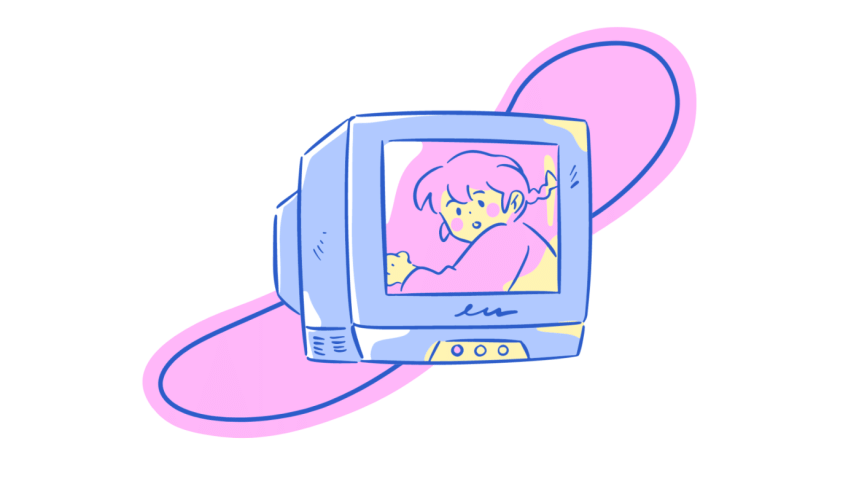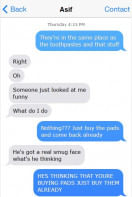Menstrual commercials, please do better

As someone who grew up in a culture where conversations surrounding periods were taboo, I believed TV advertisements for menstrual products to be an important source of information.
I later realised, they were misleading and ultimately, disappointing.
Firstly, the "blue liquid" shown in these ads in place of blood sends a confusing message to young people about what periods truly look like. It suggests that anything depicting period blood is too inappropriate to show on television, whereas blood is regularly shown in sports, films and medical dramas. Upon closer observation, we see why these commercials resort to such tropes.
In 2020, Australian period underwear brand Modibodi's "The New Way to Period" campaign intended to normalise the reality of menstruation by using red to represent blood more accurately. The brand found itself on the receiving end of an ad ban from Facebook, saying it violates its guidelines regarding "shocking, sensational, inflammatory or excessively violent content".
If you are young, what media you consume has a big impact on your beliefs. These commercials tend to be overly optimistic, demonstrating a rather tainted sense of reality.
Enter hustle culture, which can guilt individuals into being constantly productive, despite not feeling their best. The reality is that according to a recent article published by UNICEF, one-third of adolescent girls in Bangladesh skip school for a few days every month because of their period.
On the other hand, modern ads depict athletic people being uber-productive while menstruating. The intent might be to highlight the active movement people can get from their products, but this is simply misleading.
For instance, a recent Bangladeshi advertisement portrayed menstruators effortlessly trekking, implying pads are all you need to perform such daunting tasks during your period. This moulds young people into thinking they have to be on the move all the time, or else they're underperforming.
Besides demotivating menstruators, ads that only represent hyperproductive women and athletes solidify the notion that period pain is simply an excuse to avoid working. This neglects most people who experience period pain entirely, particularly ones held back by menstrual illnesses such as dysmenorrhea.
The overwhelming pressure to be productive while menstruating is internalised to the point where many people feel compelled to lie about period symptoms when calling off work. Employees opt for calling with a flu or cold to avoid being accused of laziness, despite menstrual symptoms being much more severe.
If it isn't abundantly clear, you don't have to be your most productive while on your period. You don't have to feel guilty about period pain holding you back.
After years of being guilt tripped by hustle culture amplified by marketing schemes, I'm slowly coming to terms with being okay to take the time to rest and accept the realities of being human. Hopefully, you will too.
Reference
UNICEF (June 09, 2022). School girls in Bangladesh learn that periods are nothing to be ashamed of.
Shanum closely resembles a raccoon, send her reasons to cut down on caffeine at [email protected]

 For all latest news, follow The Daily Star's Google News channel.
For all latest news, follow The Daily Star's Google News channel. 









Comments